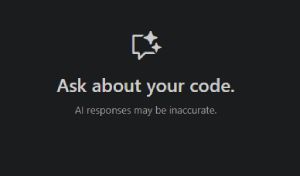The most interesting Articles

Here is a realization I made recently. I'm sitting in a room full of smart people. On one side are developers who understand the ins and outs of our microservice architecture. On the other are the front-end developers who can debug React in their sleep. In front of me is the product team that has memorized every possible user path that exists on our website. And then, there is me. The lead developer. I don't have the deepest expertise on any single technology.

Writing code is easy. Once you have a solution in mind, and have mastered the syntax of your favorite programming language, writing code is easy. Having an LLM write entire functions for you? Even easier. But the hard part isn’t the writing. It’s the reading. It’s the time it takes to load the mental model of the system into your head. That’s where all the cost really is.

The 2010s was the Wild West of the mobile world. "Mobile-first" was the buzzword, much like "AI-first" is today. Every company, from the biggest social media giants to your local pizza parlor, seemed to be pestering you to download their app. There was a genuine hype train, and everyone was on board. The apps, frankly, were always mediocre, and a far cry from the full functionality of their website counterparts. But the message was clear. If you weren't on mobile, you were falling behind.

When I saw new questions on Stackoverflow, I followed 3 simple steps. First I'd read the question, ask clarifying questions in the comment section, and then I would start writing a comprehensive answer. But one time, someone asked a question and I eagerly jumped to the comment to make a bold statement. "They are absolutely wrong! Don't believe what people say." When I think about it now, I wish I wasn't so eager to get those virtual points.

The majority of the traffic on the web is from bots. For the most part, these bots are used to discover new content. These are RSS Feed readers, search engines crawling your content, or nowadays AI bots crawling content to power LLMs. But then there are the malicious bots. These are from spammers, content scrapers or hackers. At my old employer, a bot discovered a wordpress vulnerability and inserted a malicious script into our server. It then turned the machine into a botnet used for DDOS. One of my first websites was yanked off of Google search entirely due to bots generating spam. At some point, I had to find a way to protect myself from these bots. That's when I started using zip bombs.

I once had a job interview for a backend position. Their stack was Node.js, MySQL, nothing exotic. The interviewer asked: "If you have an array containing a million entries, how would you sort the data by name?" My immediate thought was: If you have a JavaScript array with a million entries, you're certainly doing something wrong. The interviewer continued: "There are multiple fields that you should be able to sort by." This felt like a trick question. Surely the right answer was to explain why you shouldn't be sorting millions of records in JavaScript. Pagination, database indexing, server-side filtering. So I said exactly that.

I often destroyed our home computer when I was a kid. Armed with only 2GB of storage, I'd constantly hunt for files to delete to save space. But I learned the hard way that .ini files are actually important. After the computer failed to boot, I would have to reinstall Windows and Office 97. My father spent countless hours in the Office Suite and always reminded me to make sure I installed MS Excel. I didn't understand what it was for. The interface looked very confusing to me.

"I'm sorry... did you want to go to the bathroom too?" "Oh no, I was just following you." "Oh, well I'd rather you not follow me." "Wait, it's not like you have something to hide, right? Make sure you don't leave the door closed."

Back in the 2010s, we had our own hype cycle. It was silly because it hijacked a term we were all already familiar with, then rebranded it as if it were new technology. Those two terms were "Server" and "Cloud." Yes, children, there was a time when we didn't say "cloud computers". We just called them servers.
The most read articles
a book by Ibrahim Diallo
After the explosive reception of my story, The Machine Fired Me, I set out to write a book to tell the before and after.
I started as a minimum wage laborer in Los Angeles and I set out to reach the top of the echelon in Silicon Valley. Every time I made a step forward, I was greeted with the harsh changing reality of the modern work space.
Getting fired is no longer reserved to those who mess up. Instead, it's a popular company strategy to decrease expenses and increase productivity.